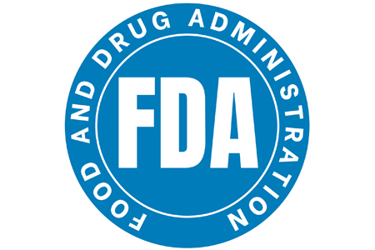iCell, Coeptis On FDA's Investigation Of CAR T Immunotherapies

By Erin Harris, Editor-In-Chief, Cell & Gene
Follow Me On Twitter @ErinHarris_1

Last month, the FDA stated it was investigating serious risks of T-cell malignancies in patients following treatment with a chimeric antigen receptor (CAR) T-cell therapies. Since 2017, six CAR T-cell therapies have been approved by the FDA and all are for the treatment of blood cancers, including lymphomas and some forms of leukemia. Said cancer therapies are made by companies such as Gilead Sciences, Johnson & Johnson, and Novartis. The FDA made its announcement following reports of T-cell malignancies in patients who received B-cell maturation agent (BCMA)- or CD19-directed autologous CAR T-cell immunotherapies, the FDA is investigating the risks. The risk of developing secondary malignancies is a class warning for these therapies, as it is for all gene therapy agents with lentiviral or retroviral vectors.
After letting the dust settle on the announcement, I met up with Yupo Ma M.D., Ph.D., Chief Scientific Officer at iCell Gene Therapeutics and Dave Mehalick, CEO and Colleen Delaney, M.D., Chief Scientific and Medical Officer at Coeptis Therapeutics to get their take on the FDA’s investigation.
“The FDA has an obligation to inform the public and monitor any potential safety concerns and or adverse events, especially new modalities such as cell therapy. Cell therapy companies also have an obligation to monitor patients for potential safety concerns including the 15-year follow up required for all cell therapies regarding the risk of malignancies and other potential adverse events.
There is much yet unknown about the risk of T Cell malignancies in patients treated with CD19 or BCMA The approximately 20 cases in the 30,000 patients treated is a potential signal though the cell therapy may not be causal and needs to be kept in the context of the available data. The B cell malignancy patients treated with CARs is a complicated patient population. Typically, these patients have failed multiple therapies and many of the therapies for which they have been treated previously have warnings for secondary cancers currently. Treatment related secondary cancers including leukemia/lymphoma are well documented in the literature. The frequency of leukemia/lymphoma after CAR treatment is still well lower than the basal level for those patients with chemotherapy based on the provided information. Further, there is minimal data on the long-term background rate of T cell malignancies in the patients with aggressive disease as until CARs were available the long-term survival rates for these patients were extremely low.
The FDA in their release also stated the overall benefits of these products continue to outweigh their potential risks for their approved uses and the FDA in the past week allowed clearance of INDs without apparent changes to their protocols.”
- Yupo Ma MD, PhD Chief Scientific Officer iCell Gene Therapeutics
“What choice do these patients have? I do not think the FDA’s investigation will affect CAR T-cell therapies as much in that area as for some other areas. This is certainly going to affect autologous therapies. I do not think it will have as much of an effect, if any, on the off the shelf, because the cells don’t persist more with T cells. Coeptis’ platform of natural killer (NK) cells offers an NK cell product that can be used as an allogeneic therapy and without standard HLA matching to the patients. NK cells really do not persist. I do not think it will have any effect.”
- Dave Mehalick, CEO, Coeptis Therapeutics
“When the news broke, I think there was a 24-hour period of shock. I also think that has now reversed itself. I’m a transplant physician; I’m an oncologist, and from that perspective alone, every time we administer chemotherapy, the patient has a risk of a secondary malignancy. And patients do get secondary malignancies. I feel it is very important to understand the risks. When I am seeing a patient as a clinician, I’ll explain: Here’s where you are. Here’s what I think is going happen to you if you don’t get this therapy, and in many cases, that is death. Versus let’s give you a therapy that may cure you, but you may get a secondary couple of years later. I think most people would choose the therapy.
I absolutely agree with Dave that I don’t think the FDA’s investigation is going to affect practice and how therapies are prescribed. I think other issues, such as cost accessibility, are much harder to overcome than the risk of a secondary malignancy. We need to continue to work on making allogeneic therapies more prevalent and more accessible and for investors to really start investing again.” (Read my colleague, Tyler Menichiello’s, article with the Coeptis team on this very topic.)
- Colleen Delaney, M.D., Chief Scientific and Medical Officer at Coeptis Therapeutics
